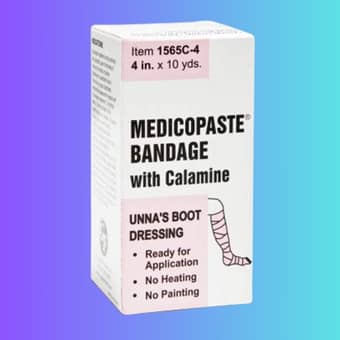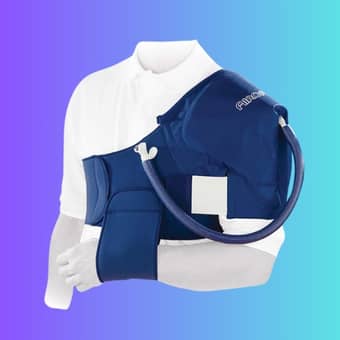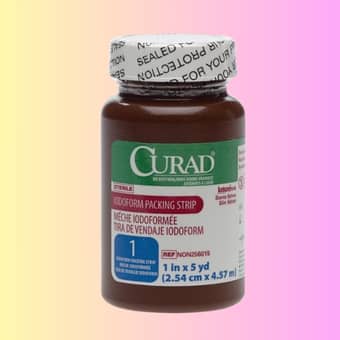You’re one of millions with high blood pressure. You want a solution that doesn’t rely on drugs. Blood pressure management is within your natural reach and power. You can do so without harming your health or well-being. By making a few easy lifestyle changes and by adding potent natural remedies to your routine, you can start to see a big drop in your blood pressure. In this post, we’ll explore the best ways to do this. They will help you start feeling healthier and more energetic today.

Table of Contents
- I. Understanding high blood pressure.
- II. The Role of Brainwave Stimulation in Lowering Blood Pressure
- III. How Brainwave Stimulation Works to Lower Blood Pressure Without Medication
- IV. Lifestyle Factors Affecting Blood Pressure
- V. There are natural remedies for lowering blood pressure.
- VI. Practical Steps to Lower Blood Pressure Without Medication Using Brainwave Stimulation
- VII. Tips for Creating a Brainwave Stimulation Routine
- VIII. Overcoming Common Challenges in Lowering Blood Pressure
- IX. Monitoring progress and adjusting the brainwave stimulation method remains unchanged.
- X. The importance of consistency and patience.
- XI. Combining brainwave stimulation with other natural methods.
- XII. Common Misconceptions About Brainwave Stimulation and Blood Pressure
- XIII. Resources for Further Learning and Support
- Manage Stress to Effectively Lower Blood Pressure
- FAQ
Key Takeaways:
Here are three key takeaways: They show a way to lower your blood pressure without medication.
-
Dietary changes can help. Eat a balanced diet with whole foods, fruits, vegetables, and low-fat dairy products. This can help lower your blood pressure. Eat more potassium-rich foods like bananas, leafy greens, and sweet potatoes. Potassium counteracts sodium and blood pressure.
-
Make physical activity a consistent part of your routine. It should be moderate-intensity. Do it for at least 30 minutes a day. You can stride while walking, pedal while cycling, or stroke while swimming. Regular physical activity can help strengthen the heart. It can improve blood flow and lower blood pressure. Aim for 150 minutes of exercise per week for optimal benefits.
-
Stress Reduction Techniques: Chronic stress can raise blood pressure. So, you must add stress-reducing activities to your daily routine. Practice deep breathing exercises. Also, try meditation or yoga. It’s helped manage stress and lower blood pressure. for 10-15 minutes of stress reduction per day for optimal benefits.
I. Understanding high blood pressure.
Define high blood pressure before seeking natural remedies for it’s reduction. Also, learn about risks and complications.
1.1. What is high blood pressure?
Now that you’re taking the first step to managing your blood pressure, let’s define high blood pressure. High blood pressure, also called hypertension, is a condition. Your blood pressure surges, straining your artery walls with each beat. This can lead to damage to your blood vessels, heart, and kidneys over time.
1.2. Risks and Complications of Untreated High Blood Pressure

Little do you know, uncontrolled high blood pressure can lead to severe health issues. It raises your risk of heart disease and stroke. It also raises your risk of kidney disease and vision loss. These are among other complications.
Also, if left untreated, high blood pressure can make your blood vessels narrow and harden. This makes it hard for blood to flow to your organs. This can lead to heart failure, kidney failure, and even dementia. The good news is that, by understanding the risks and complications, you can take action. You can manage your blood pressure and reduce your risk of these conditions.
II. The Role of Brainwave Stimulation in Lowering Blood Pressure
Some studies have shown that brainwave stimulation can lower blood pressure. It does so without medication and plays a significant role. This involves using sound or light to stimulate your brainwaves. It can calm your mind and body, reducing stress and anxiety. These can cause high blood pressure.
2.1. Introduction to Brainwave Stimulation for Lowering Blood Pressure Without Medication
Now, you may be wondering how brainwave stimulation can help with blood pressure. This technique works by stimulating your brain’s natural frequencies. It’s promoting relaxation and reducing stress. By calming your mind and body, you can lower your blood pressure and improve your health.
2.2. Benefits of using brainwave stimulation instead of blood pressure medication.

To avoid medication’s side effects, you may want to try brainwave stimulation. It’s a natural alternative. This method is non-invasive and safe. It has no known side effects. So, it’s an attractive option. It’s for those looking to lower their blood pressure without medication.
The benefits of brainwave stimulation extend beyond lowering blood pressure. This technique can also help you reduce stress and anxiety. It’s going to improve your mood and enhance your well-being. Relaxation reduces overwhelm. It improves your mental and emotional health. This leads to a better life.
2.3. The positive changes that this method brings to our health.
Lowering your blood pressure is one benefit. There are many benefits to using brainwave stimulation. This technique can also improve your sleep. It’s also capable of boosting your immune system and increasing your energy.
With practice, you may find that you’re better at managing stress and anxiety. This can lead to many positive changes in your health. Your heart rate slows. Your blood vessels widen. Your body starts to work better. All this can help make you healthier and happier.
III. How Brainwave Stimulation Works to Lower Blood Pressure Without Medication
It offers a natural way to lower blood pressure. Brainwave stimulation is a promising method. It has gained much attention in recent years.
3.1. Explanation of the Mechanism of Brainwave Stimulation

Brainwave stimulation affects blood pressure. It does so by influencing your autonomic nervous system (ANS). The autonomic nervous system controls heartbeats and blood circulation. By stimulating certain brainwaves, you can calm your ANS. This leads to lower blood pressure, and it’s a state of relaxation.
3.2. Scientific research and real-world results of this method.
Researchers conducted in-depth studies of brainwave stimulation, producing striking results. Research demonstrates a notable blood pressure decrease with this approach. The reductions are often like those from medication.
Brainwave stimulation decreases systolic blood pressure by 10–15 mmHg on average. This is a big drop. Also, studies have shown that regular brainwave stimulation can lower blood pressure long-term. This effect lasts even after the stimulation has stopped. This suggests that your body is adjusting to the calming effects. They come from brainwave stimulation. This leads to a longer-lasting drop in blood pressure.
IV. Lifestyle Factors Affecting Blood Pressure
Your lifestyle plays a significant role in determining your blood pressure levels. Unhealthy habits can raise your risk of high blood pressure. But, making positive changes can help lower it. Some of the key lifestyle factors that affect blood pressure include:
-
Diet and nutrition.
-
Exercise and physical activity.
-
Stress management
-
Sleep quality
-
Smoking and alcohol consumption.
You must not ignore these factors. They will help you lower your blood pressure.
4.1. Diet and Nutrition Tips for Lowering Blood Pressure
A tailored diet helps reduce blood pressure levels. Focus on consuming:
-
Fresh fruit and vegetables
-
Whole grains and lean proteins.
-
Low-fat dairy products and healthy fats.
-
Omega-3 rich foods
Knowing what to eat and what to avoid can make a huge difference in your blood pressure levels.
4.2. Exercise and physical activity are important for blood pressure control.

Now that you know the importance of diet, it’s time to get moving! Regular exercise can help lower your blood pressure and improve your health. Aim for:
-
At least 30 minutes of moderate-intensity exercise per day.
-
Incorporating strength training and high-intensity interval training.
-
Increasing physical activity throughout the day.
Plus, exercise can also help you maintain a healthy weight. It reduces stress and improves sleep. These benefits can lower blood pressure.
Exercise is not a physical activity. It is also about making lifestyle changes. These changes promote well-being. For example, taking the stairs instead of the elevator and walking to work can help. So can doing household chores. All these things can increase physical activity.
4.3. Stress Management Techniques for Blood Pressure Reduction
Stress triggers a sharp increase in blood pressure. To manage stress, try:
-
Meditation and deep breathing exercises
-
Yoga and Tai Chi.
-
Journaling and writing.
-
Talking to a friend or therapist.
To manage stress well, you need to find the sources of stress in your life. Then, you need to develop ways to cope with them. This can include setting boundaries, prioritizing tasks, and taking breaks throughout the day.
V. There are natural remedies for lowering blood pressure.
Once again, nature gives us many remedies. They help lower blood pressure without medication. You can explore many options. They include herbal supplements, aromatherapy, and alternative therapies.
5.1. Herbal Supplements and Their Effects on Blood Pressure
Studies have shown that some herbal supplements can lower blood pressure. For example, hawthorn, olive leaf extract, and coenzyme Q10 help reduce blood pressure. Several studies have found this.
5.2. Aromatherapy and Essential Oils for Blood Pressure Reduction

Some oils, like lavender, bergamot, and ylang-ylang, calm the body. They can reduce blood pressure.
Understanding how aromatherapy works can help you make the most of its benefits. When you inhale important oils, they interact with your brain’s limbic system. This system regulates emotions and stress. By reducing stress and promoting relaxation, aromatherapy can help lower your blood pressure.
5.3. Acupuncture and Other Alternative Therapies for Blood Pressure Control
Alternative therapies are becoming more popular. It’s no surprise that researchers have found acupuncture to lower blood pressure.
This ancient practice involves inserting thin needles into specific points on the body. It does this to stimulate healing and balance. Acupuncture targets specific points in blood pressure. It can help regulate your body’s natural rhythms and lower your blood pressure.
VI. Practical Steps to Lower Blood Pressure Without Medication Using Brainwave Stimulation
Many natural remedies and lifestyle changes can lower blood pressure. But brainwave stimulation is a less-known but effective approach. It can make a big difference. You can use your brain’s natural frequencies. They can calm your mind and relax your body. In the end, this will reduce your blood pressure.
6.1. Detailed Guide on How to Use Brainwave Stimulation to Lower Blood Pressure

Some people may doubt brainwave stimulation. It’s easy to incorporate into your daily schedule. To get started, find a quiet and comfortable space to sit or lie down, close your eyes, and focus on your breath. Then, listen to a guided audio recording or music. The designs stimulate alpha brainwaves. These waves lead to relaxation and lower blood pressure.
6.2. Necessary Devices and How to Select Appropriate Blood Pressure-Lowering Music
Headphones and earbuds are crucial for an immersive experience. They immerse you in soothing soundscapes. When choosing music or recordings, look for ones designed to stimulate alpha brainwaves. They’re usually in the 8–12 Hz frequency range.
Plus, consider the quality of the audio and the credibility of the creator. Opt for recordings with soothing music or nature sounds that help you relax and unwind. You can find many brainwave stimulation audio tracks online. They include some made to reduce blood pressure.
6.3. Benefits and encouragement to try this method for optimal results.
Alpha brainwaves lower blood pressure. They also reduce anxiety, improve sleep, and increase calmness. Adding brainwave stimulation to your routine lets you see these benefits up close. It’s a key step to reaching ideal blood pressure.
Guide yourself to a healthier, more relaxed state. Do it by committing to regular brainwave stimulation. With consistent practice, your body’s response will amaze you. You’ll be well on your way to lowering your blood pressure without medication.
VII. Tips for Creating a Brainwave Stimulation Routine
Incorporating brainwave stimulation into your routine will amaze you. It reduces blood pressure without medication. To get started, follow these tips:
-
Set aside time each day for brainwave stimulation. Do it’s first thing in the morning or before bed.
-
Find a quiet and comfortable space to relax and cut down on our distractions.
-
Start with short sessions (10–15 minutes). Lengthen them as your practice becomes more established.
-
Try different brainwave stimulation frequencies and types. Find what works best for you.
-
Be consistent and make brainwave stimulation a non-negotiable part of your daily routine.
This will help you build a routine. It will maximize the benefits of brainwave stimulation for lowering blood pressure.
7.1. Setting up a brainwave stimulation session.

You’ll want to create a peaceful atmosphere that promotes relaxation and reduces stress. Dim the lights, light some candles, and play calming music in the background to set the mood.
7.2. Choosing the Right Brainwave Stimulation Frequency for Blood Pressure Reduction
Lowering blood pressure requires a specific frequency range. It targets the brain’s relaxation response. Look for frequencies between 4 and 12 Hz. These frequencies correspond to the alpha and theta brainwave states.
It’s crucial to note that different frequencies can have varying effects on the body. For example, alpha frequencies (8–12 Hz) can reduce anxiety and stress. Theta frequencies (4–8 Hz) can induce deeper relaxation and reduce blood pressure.
7.3. Incorporating brainwave stimulation into daily life.
Routine is key when it comes to making brainwave stimulation a habit. Try to incorporate it into your daily routine, such as right after waking up or before a stressful event.
The more you practice brainwave stimulation. The more your brain adapts and responds to the frequencies, the more consistency is key. It’s letting you enjoy brainwave stimulation. It lowers blood pressure.
VIII. Overcoming Common Challenges in Lowering Blood Pressure
People often struggle to lower their blood pressure without medication. This is due to various challenges. In this chapter, we’ll explore some common obstacles you may face and provide tips on how to overcome them.
8.1. Dealing with Stress and Anxiety while Lowering Blood Pressure
To lower your blood pressure, manage stress and anxiety. They can hinder your progress. Practice relaxation techniques. Use deep breathing, meditation, or yoga. They will calm your mind and body. This will lower your blood pressure.
8.2. Staying motivated and committed to the brainwave stimulation method.

You may find it hard to stick to brainwave stimulation. This is especially true if you don’t see quick results. But it’s crucial to stay committed to the process. You should also celebrate small victories along the way.
The key to success lies in making the brainwave stimulation method a habit. Set aside a specific time each day to practice, and try to incorporate it into your daily routine. This will help you stay motivated and focused on your goal.
8.3. Managing Setbacks and Plateaus in Blood Pressure Reduction
But motivated people may still face setbacks. They may also hit plateaus in their blood pressure reduction journey. Don’t get discouraged if you hit a roadblock. Instead, analyze what’s causing the stall and adjust your approach.
You commit to your goal. Revisit your life changes and find areas to improve. Make changes to your diet, exercise routine, or stress management. Do this to get back on track and keep making progress towards lowering your blood pressure.
IX. Monitoring progress and adjusting the brainwave stimulation method remains unchanged.
To ensure brainwave stimulation lowers your blood pressure, check your progress. Make adjustments as needed.
9.1. Tracking Blood Pressure Readings and Identifying Patterns

Check your blood pressure often. This will help you track your progress and find any patterns or changes. Keep a log or use a mobile app to record your readings. Note the date, time, and any factors that may have affected the reading, such as exercise or stress.
9.2. Adjusting brainwave stimulation frequency and intensity for optimal results.
You may need to change how often and how much you do brainwave stimulation. Do this based on your progress and how your body responds. Experiment with different frequencies and intensities to find what works best for you.
You can adjust stimulation sessions by changing their frequency, duration, or intensity. You may find that you need more sessions. They may need to be either more frequent or longer. This will help you achieve the best results. Be patient and work with your body to find the right balance.
9.3. Making lifestyle changes based on progress and feedback.
By watching your brainwave stimulation, you’ll find where to change your life. They’ll help your progress. This may include changes to your diet, exercise routine, or stress management techniques.
Stimulating the brain can provide valuable insights. They show how your body responds to stimuli. This helps you make informed choices about your lifestyle. By using brainwave stimulation and healthy habits, you’ll achieve the best results. You’ll also have healthy blood pressure.
X. The importance of consistency and patience.
Not everyone will see immediate results. They’re trying to lower their blood pressure without drugs. Making big changes to your lifestyle and habits takes time, effort, and dedication. Being consistent and patient are keys. They’re crucial for lowering your blood pressure without medication.
10.1. Why is consistency key to lowering blood pressure with brainwave stimulation?

Lowering your blood pressure requires regular practice and commitment to brainwave stimulation techniques. Consistency is key. It’s what allows your brain to adapt to new patterns. This leads to lasting changes in your blood pressure.
10.2. Managing Expectations and Celebrating Small Victories
Any successful journey to lower blood pressure begins with realistic expectations. Don’t expect miracles overnight. Instead, focus on celebrating small victories along the way.
Recognize that small victories matter. For example, a slight drop in blood pressure or more energy are key milestones in your journey. Celebrating these achievements will help you stay motivated. It’s also encouraging you to keep making progress.
10.3. Staying patient and focused on long-term results.
Being patient and focused is critical. Lowering blood pressure depends on a sustained, natural approach. It’s easy to get discouraged when you don’t see immediate results. But, remember that your body is adapting to new habits and changes.
Consistency is key to achieving long-term results. Stick to your natural ways to lower your blood pressure. You’ll have lower blood pressure for years. Recall, it’s a journey, not a destination.
XI. Combining brainwave stimulation with other natural methods.
Remember, brainwave stimulation isn’t a standalone solution. It is a powerful tool. You can combine it with other natural methods to make it more effective.
11.1. Integrating brainwave stimulation with diet and exercise can enhance its results.
Regular use enhances brainwave stimulation’s effectiveness. Do this as part of a healthy diet and regular exercise. By doing so, you’ll be tackling high blood pressure from many angles. This creates a combined effect that can lead to even more results.
11.2. Using brainwave stimulation in conjunction with herbal supplements and aromatherapy.

The right herbal supplements and aromatherapy can make a potent mix. It’s worked with brainwave stimulation to lower your blood pressure. Certain herbs, like hawthorn and ashwagandha, can lower blood pressure. Vital oils, like lavender and bergamot, can reduce stress and anxiety.
Diet is crucial. Certain foods can boost or block herbal supplements. For example, eating foods high in potassium can increase Hawthorn’s power. Such foods include bananas and leafy greens. It helps to lower blood pressure. By minding your diet, you can create a powerful synergy. It’s yielding impressive results.
11.3. Creating a Holistic Approach to Lowering Blood Pressure
Develop a full strategy. It will use brainwave stimulation, diet, exercise, herbs, and aromatherapy. It lowers blood pressure. You’ll address the physical, emotional, and mental aspects of high blood pressure. This way, you’ll tackle the root causes of the condition, not its symptoms.
Conjunction is key here. By using these natural methods, you’ll create a holistic approach. It works with your body’s natural rhythms. This approach lowers blood pressure. It also improves well-being. It reduces stress and anxiety, and it increases energy and vitality.
XII. Common Misconceptions About Brainwave Stimulation and Blood Pressure
Now you’re considering brainwave stimulation to lower your blood pressure. You need to separate fact from fiction and address your concerns.
12.1. Debunking Myths About Brainwave Stimulation and Its Effectiveness
Many people think brainwave stimulation is a quick fix or a magic pill. This is a big misconception. Brainwave stimulation is different. It is a proven technique. But, it needs consistent practice and patience to work. You can experience the benefits of brainwave stimulation for yourself. To do this, learn the underlying principles and commit to regular sessions.
12.2. Addressing Concerns About Safety and Side Effects

Addressing concerns about safety and side effects is crucial when exploring brainwave stimulation. Brainwave stimulation is safe. It’s non-invasive, gentle, and well-researched. Studies have proven that it has no bad effects.
Misconceptions about brainwave stimulation come from not understanding how it works. In reality, brainwave stimulation works by changing your brain’s natural frequencies. This promotes relaxation and reduces stress. Both of these things lower blood pressure. Understanding brainwave stimulation makes you feel confident. You can trust it’s safety and efficacy.
12.3. Separating Fact from Fiction in Brainwave Stimulation Research
Now you know about the misconceptions about brainwave stimulation. So, we’ve got to look at the scientific evidence for its effectiveness. Many studies have shown this. Brainwave stimulation lowers blood pressure and anxiety. It also improves well-being.
Brainwave stimulation works by targeting the root causes of high blood pressure. These include stress and anxiety. Fixing these factors will lower blood pressure. Brainwave stimulation can help you do it. You can use the research to understand brainwave stimulation. Then, you can decide if it fits with your natural approach to lowering blood pressure.
XIII. Resources for Further Learning and Support
Keep in mind that you can lower your blood pressure without medication. It requires a whole new approach. You need reliable resources and support to help you.
13.1. Recommended Reading and Online Resources for Brainwave Stimulation and Blood Pressure
Sites like BrainwaveHub, BrainwaveMusic, and Omvana offer lots of information on brainwave stimulation. They also cover its impact on blood pressure. You can explore their websites, blogs, and social media channels. They can help you learn more about this topic. You can also find guided meditations and soundtracks to support your practice.
13.2. Finding a healthcare professional or coach for guidance and support.

You can use resources such as the American Holistic Health Association. You can also use the National Certification Board for Therapeutic Massage and Bodywork. You can also use the International Coach Federation. They can connect you with healthcare professionals. The professionals specialize in natural health and wellness. They can give you personalized guidance. They can support you to help you meet your blood pressure goals.
For instance, a doctor can help you find health issues. People have known them to cause high blood pressure. A coach can help you set realistic goals and make a plan to achieve them.
13.3. Joining a community of like-minded individuals for motivation and accountability.
Some online forums, social media groups, and local meetups focus on natural health. They also focus on wellness. They provide a place for you to connect with others who share your goals and values. You can join these groups to learn from others. You can also share your experiences. It’s going to help you stay motivated. You’re working to lower your blood pressure without medicine.
Joining a group of like-minded people can help you stay accountable and inspired. You can join discussions. You can ask questions and share your progress. This can help you stay committed to your goals. It’s also helpful for celebrating your successes.
Manage Stress to Effectively Lower Blood Pressure
Summing up, you now have a full guide. It explains how to lower your blood pressure without medication. You can lower your blood pressure. You can do this by making simple lifestyle changes. They will help you keep a healthy heart. These include a balanced diet, regular exercise, stress management, and enough sleep. Remember, it’s about making sustainable choices. They benefit your well-being. With persistence and patience, you can take control of your health. You can then enjoy a life free from the risks of high blood pressure.
FAQ
Q: What changes can I make to lower my blood pressure without medication?
Making lifestyle changes is a great way to lower your blood pressure. You can do it without relying on medication. You can make some effective changes. They include increasing your activity levels. For example, you can walk, jog, cycle, or swim for at least 30 minutes a day. You can also eat a heart-healthy diet. It’s supposed to have lots of fruits, vegetables, whole grains, and low-fat dairy. Also, cutting salt, quitting smoking, and limiting drinking can lower blood pressure. Also, practicing stress-reducing techniques helps. These include meditation, yoga, and deep breathing.
Q: What natural supplements can I take to help lower my blood pressure?
Studies have shown that certain natural supplements can help lower blood pressure. These include potassium, calcium, and magnesium. They can relax blood vessels and improve blood flow. Fish oil supplements contain omega-3 fatty acids. They can also reduce inflammation and improve heart health. Also, hawthorn, garlic, and Coenzyme Q10 (CoQ10) are herbal supplements. Studies have shown that they have a good effect on blood pressure. But it’s especially important to consult your healthcare provider before taking supplements. This is especially true if you’re already taking medication or have medical conditions.
Q: How can I check my blood pressure at home and track my progress?
Monitoring your blood pressure at home is a great way to track your progress. You can make adjustments to your lifestyle or supplement as needed. You can buy a blood pressure watch at a pharmacy or medical supply store. Take your blood pressure at the same time every day. For example, in the morning and evening. Record the readings in a log or use a mobile app to track your progress. This will help you find patterns and trends. You can share the information with your doctor. This will help you make smart choices about your treatment. Calibrate your watch to maintain exact synchrony. You must also use the correct technique to take your blood pressure.
Last Updated on August 18, 2025 by LE HONG CUONG





